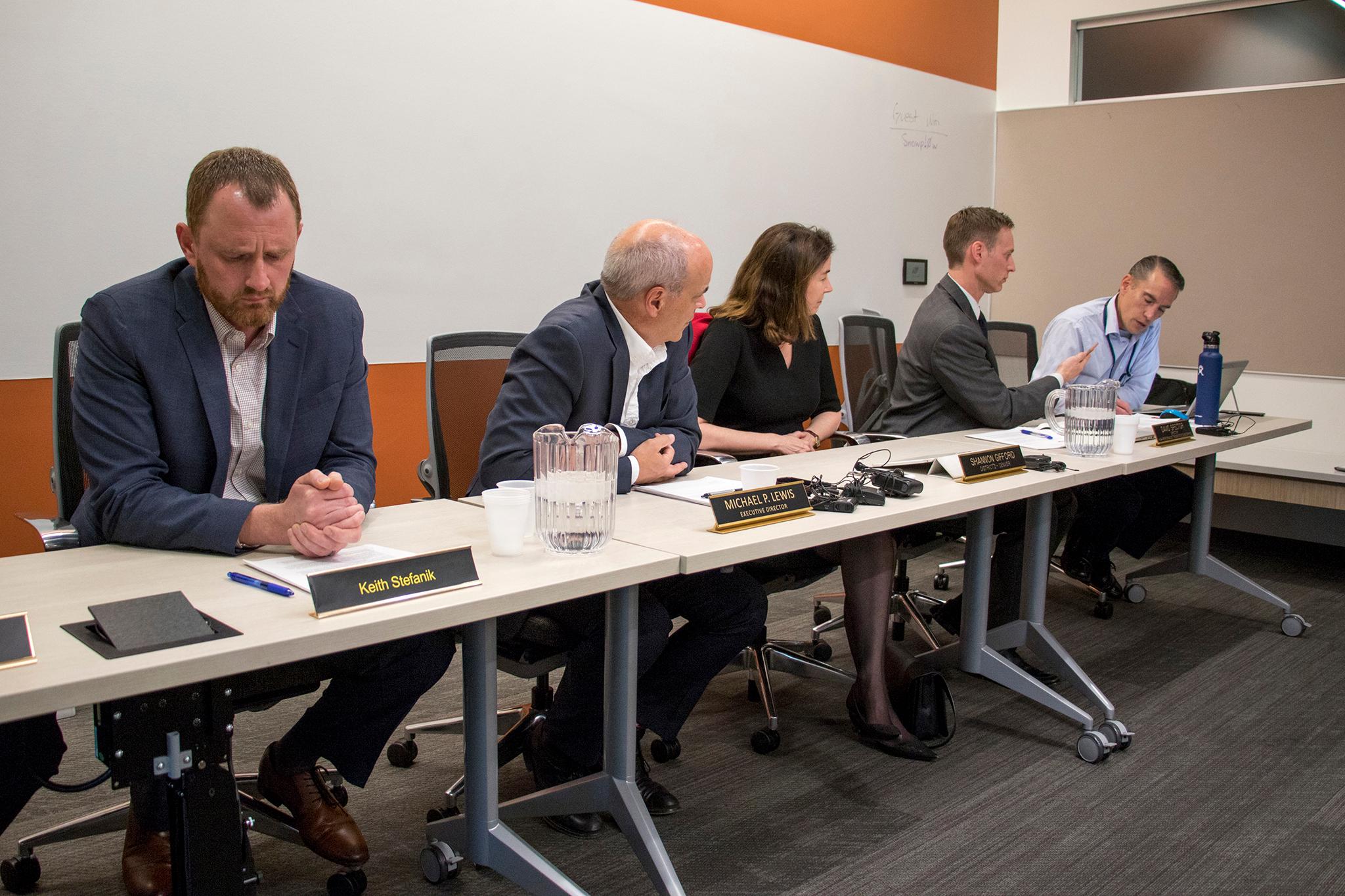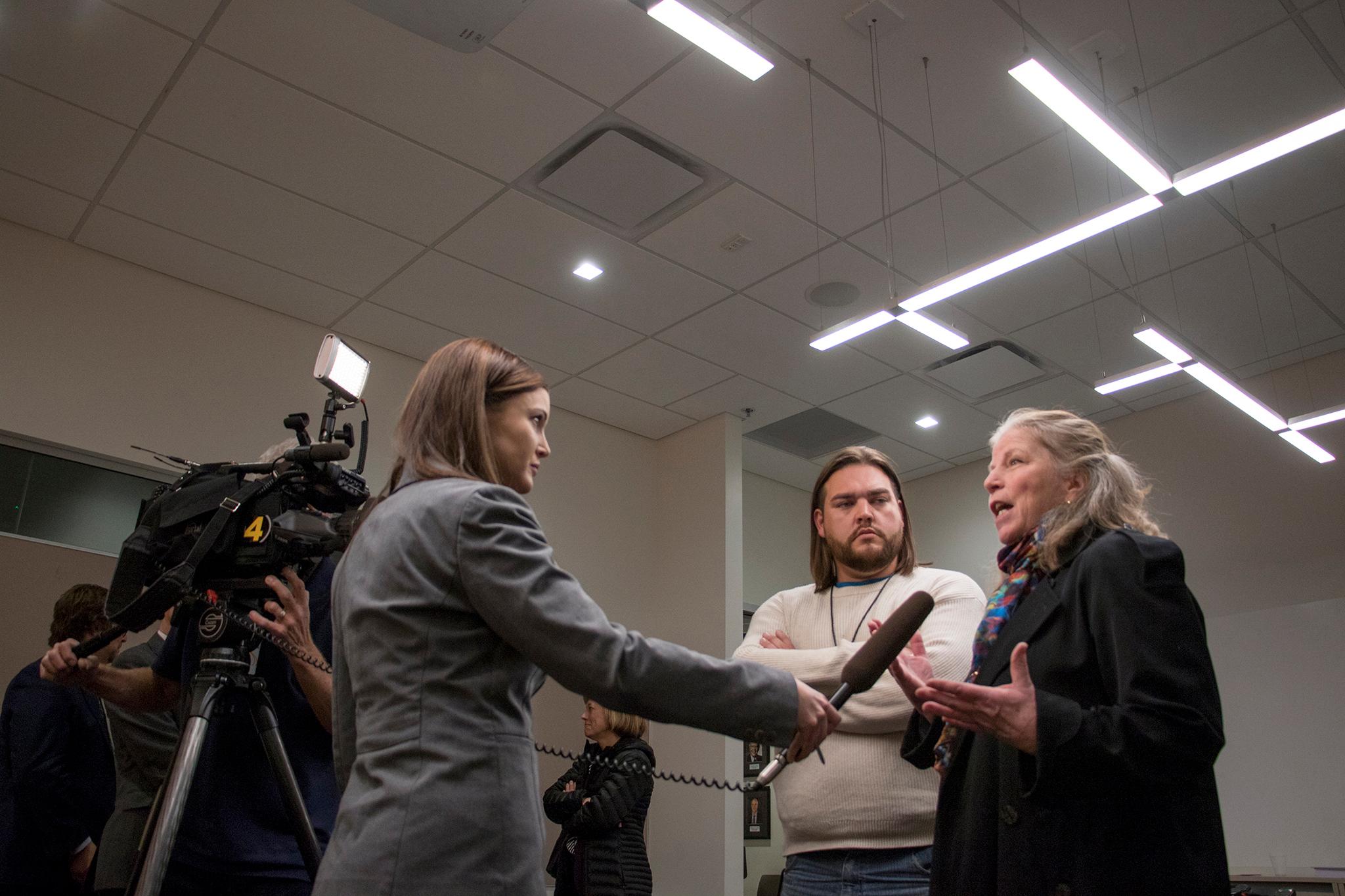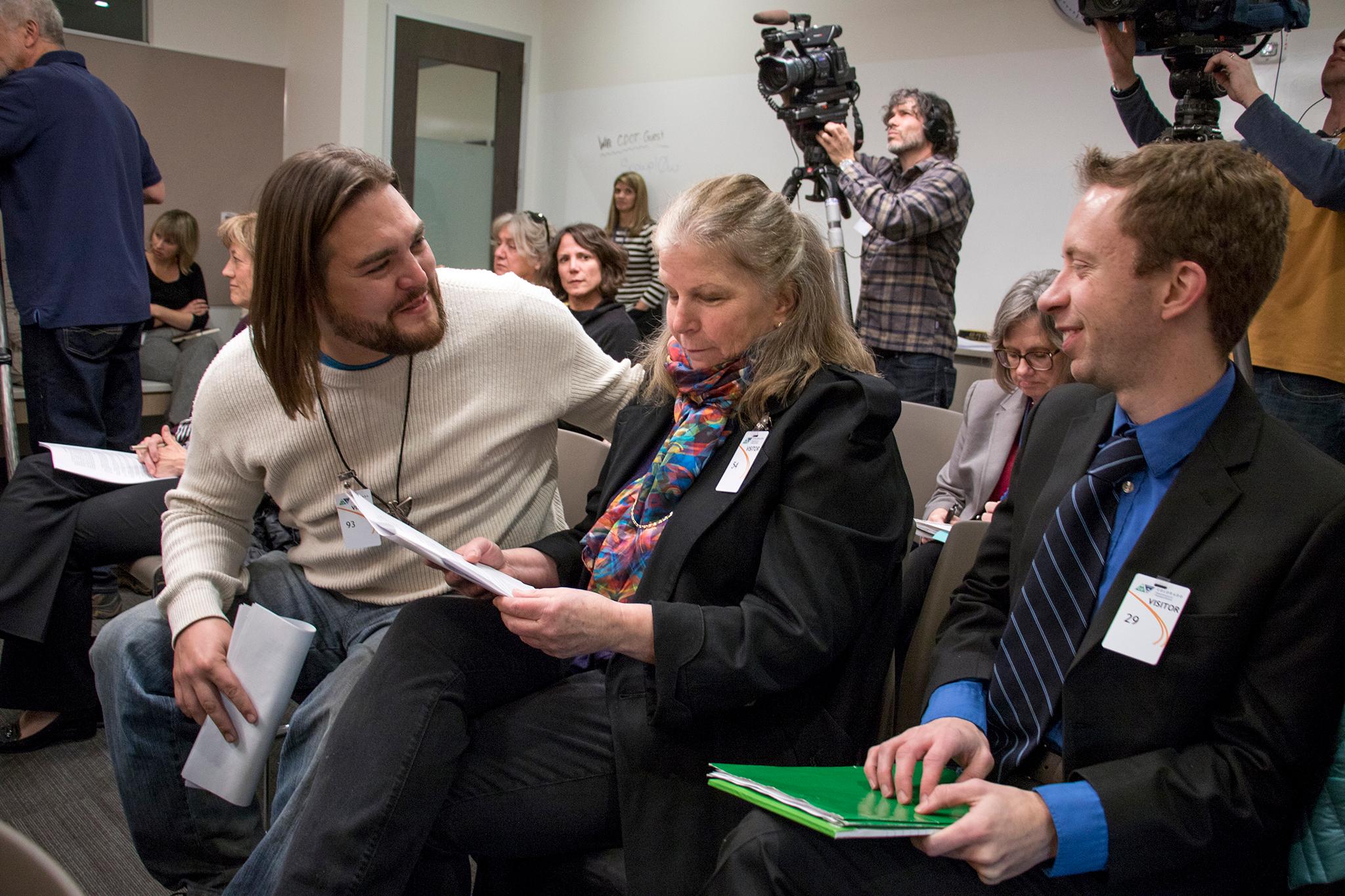On Thursday afternoon, the Colorado Transportation Commission voted unanimously to approve a $600,000 settlement with Denver community groups who filed a lawsuit challenging the Record of Decision for the massive I-70 widening project, which broke ground earlier this year.
The settlement includes $550,000 to fund a community health study of residents living near the highway, $25,000 to fund an independent monitoring position on that study's administrative team, $25,000 to fund new tree plantings in nearby neighborhoods, a commitment to install four additional particulate air quality monitors along the highway project and a commitment to increase community outreach during construction, both in Spanish and English. It also created a threshold for fine particulate pollution that's lower than federal standards, which would require construction to stop if any of those new monitors detects particulates at that level.
Neither the Colorado Department of Transportation (CDOT) nor the petitioners, which include the Sierra Club, the Elyria and Swansea Neighborhood Association, the Chaffee Park Neighborhood Association and the Colorado Latino Forum, admitted any wrongdoing or liability in the matter.
Keith Stefanik, CDOT's manager on the highway expansion, began the session by saying this was a great day for the project: "It shows a lot of good faith efforts on both sides."
The special voting session was fairly short, though technical difficulties arose as absent commissioners phoned into the room and caused some delay and confusion. Eventually, the settlement terms were read and passed.

Ean Tafoya, a representative of the Colorado Latino Forum, was visibly emotional after the deliberation.
"This has been years in the making," he told Denverite. "We did it, finally."
Becky English, who represented the Sierra Club, said the settlement was a months-long process. She and Tafoya are particularly glad that the community health study will now begin to move forward.
"This is all we asked for in the very beginning," she said. "We asked for the study, and we were refused the study. Sadly we had to go to court in order to get this outcome."
Tafoya said the study will be "the first of its kind," in that it will look collectively at how noise, air, water and soil pollution affects residents' health.
Last September, CDOT and contractor Kiewit Meridiam Partners got approval from the city to exceed local noise standards as they work nights to renovate I-70. Denver's health department has also increased efforts in the last year to measure and communicate air pollution data.
But advocates like Tafoya have said they're still concerned about the community's health.
"We've got to find out what's making people sick," he said, and added that vehicle emissions from the highway are likely only part of north Denver's poor health outcomes.

North Denver residents have long reckoned with a legacy of pollution and poorer health outcomes than the rest of the city. Those are some of the reasons why community advocates have loudly opposed the project.
In February 2017, activists led by Candi CdeBaca, who's now running against Councilman Albus Brooks to represent District 9, took over a CDOT meeting about the highway project. Shailen Bhatt, who then was CDOT's executive director, told the protesters that if they don't like the project, they should sue. And they did.
At one time, three lawsuits were in motion opposing the project. Two of those efforts failed, and the settlement Thursday put the last of them to rest.
While the highway project will continue, Tafoya said the deal opens a door to explore impacts from sources beyond cars and construction. Other potential pollution sources, like emissions from the nearby Suncor oil refinery and historic smelter pollution that triggered an EPA Superfund designation across the area, may also be relevant. He hopes incoming governor Jared Polis might allocate money to address health issues in these neighborhoods after the study is complete.












